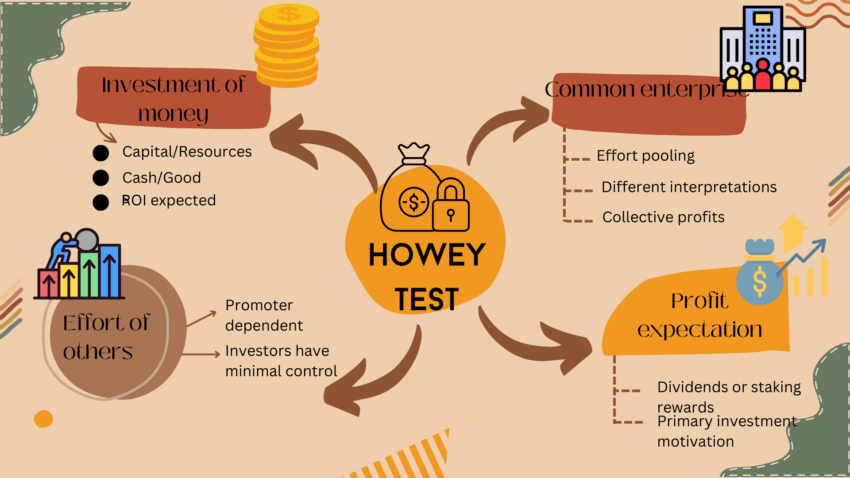The United States Securities and Exchange Commission (SEC) has launched lawsuits against crypto giants Binance and Coinbase in an unprecedented move that sent ripples across the crypto industry. The charges against these major exchanges have far-reaching implications, ranging from allegations of deceit and lack of disclosure to serious regulatory violations.
The new wave of regulatory scrutiny signals a significant turn and has stirred conversations about classifying certain cryptocurrencies as securities.
SEC Sues Binance and Coinbase
Binance, the preeminent player in the global cryptocurrency exchange market, and its founder, Changpeng Zhao, face a series of regulatory infringements, as pointed out by the SEC. The major accusations against Binance surround the alleged commingling of billions of dollars belonging to users.
Furthermore, the company is accused of undermining its regulations to facilitate affluent US investors’ participation in trading on Binance’s unregulated global exchange platform.
Simultaneously, Coinbase grapples with a lawsuit from the SEC, claiming that the company is functioning as an unregistered broker and exchange. The regulatory body believes Coinbase’s flagship services — prime brokerage, exchange, and staking programs — violate securities regulations.
The dual lawsuits against Binance and Coinbase have sparked extensive debates and deliberations across cryptocurrency. Speculations are rife about whether the regulatory body intends to throttle these cryptocurrency exchanges into oblivion, opening the floodgates for Wall Street to assume dominance.
While the future of these crypto exchanges hangs in the balance, what is evident is the growing concern for regulatory compliance in the crypto market.
Howey Test in the Crypto Domain
At the heart of the SEC’s legal action is the Howey Test, a somewhat antiquated legal framework conceived in 1946. This test, named after the landmark court case SEC vs. W.J. Howey Co., determines whether an investment qualifies as a “security.”
It comprises four key criteria: an investment of money, in a common enterprise, with an expectation of profit derived predominantly from the efforts of others.

The SEC contends that the 19 tokens traded on Binance and Coinbase meet the Howey Test’s criteria. The reason is factors such as initial sales and fundraising events, ongoing developmental pledges, and the use of social media to express the protocols’ features and advantages.
However, critics argue that applying this test — born in an era long before the advent of cryptocurrencies — to digital assets is inadequate and can lead to overly restrictive regulatory outcomes.
Cryptos Named Securities in SEC Lawsuits
The SEC notably specify 19 cryptos as securities in the lawsuits against Binance and Coinbase. Here’s the full list of tokens named as securities by the SEC.
In the SEC lawsuit against Binance, the regulatory agency labeled these tokens as securities:
- Cosmos ($ATOM)
- Binance Coin ($BNB)
- Binance USD ($BUSD)
- $COTI ($COTI)
Meanwhile, in the SEC lawsuit against Coinbase, these cryptos were named securities:
- Chiliz ($CHZ)
- Near ($NEAR)
- Flow ($FLOW)
- Internet Computer ($ICP)
- Voyager Token (VGX)
- Dash ($DASH)
- Nexo ($NEXO)
Finally, these tokens traded on both platforms, Binance and Coinbase, were also labeled securities:
- Solana ($SOL)
- Cardano ($ADA)
- Polygon (MATIC)
- Filecoin ($FIL)
- The Sandbox ($SAND)
- Decentraland ($MANA)
- Algorand ($ALGO)
- Axie Infinity ($AXS)
The major exception from these lists is Ethereum (ETH), which was notably excluded.
Read more: 12 Best Decentralized Exchanges for 2023
If these tokens are ultimately classified as securities, they would likely be delisted from US exchanges, and their trade would be severely restricted. Such an eventuality could set a daunting precedent, creating substantial regulatory challenges for the crypto industry, particularly for the developers and token holders.
Full List of Cryptos Named Securities by the SEC
Adding to the charges against Binance and Coinbase, the SEC’s list of alleged securities encompasses a total of 67 different cryptocurrencies. Each token categorized as security falls under specific regulations and requirements, amounting to over $100 billion of the crypto market or roughly 10% of the total market capitalization.
Prominent cryptocurrencies previously declared securities by the SEC include:
- Ripple (XRP)
- Telegram’s Gram (TON)
- LBRY Credits (LBC)
- OmiseGo (OMG)
- $DASH ($DASH)
- Algorand ($ALGO)
- Naga (NGC)
- Monolith (TKN)
- IHT Real Estate (IHT)
- Power Ledger (POWR)
- Kromatica (KROM)
- DFX Finance (DFX)
- Amp (AMP)
- Rally (RLY)
- Rari Governance Token (RGT)
- DerivaDAO (DDX)
- $XYO Network ($XYO)
- Liechtenstein Cryptoasset Exchange (LCX)
- Kin (KIN)
- Salt Lending (SALT)
- Beaxy Token (BXY)
- DragonChain (DRGN)
- Tron (TRX)
- BitTorrent (BTT)
- Terra USD (UST)
- Luna (LUNA)
- Mirror Protocol (MIR)
- Mango (MNGO)
- Ducat (DUCAT)
- Locke (LOCKE)
- EthereumMax (EMAX)
- Hydro (HYDRO)
- BitConnect (BCC)
- Meta 1 Coin (META1)
- Filecoin ($FIL)
- Binance Coin ($BNB)
- Binance USD ($BUSD)
- Solana ($SOL)
- Cardano ($ADA)
- Polygon (MATIC)
- Cosmos ($ATOM)
- The Sandbox ($SAND)
- Decentraland ($MANA)
- Axie Infinity ($AXS)
- $COTI ($COTI)
- Paragon (PRG)
- AirToken (AIR)
- Chiliz ($CHZ)
- Flow ($FLOW)
- Internet Computer ($ICP)
- Near ($NEAR)
- Voyager Token (VGX)
- Nexo ($NEXO)
- Mirrored Apple Inc. (mAAPL)
- Mirrored Amazon.com, Inc. (mAMZN)
- Mirrored Alibaba Group Holding Limited (mBABA)
- Mirrored Alphabet Inc. (mGOOGL)
- Mirrored Microsoft Corporation (mMSFT)
- Mirrored Netflix, Inc. (mNFLX)
- Mirrored Tesla, Inc. (mTSLA)
- Mirrored Twitter Inc. (mTWTR)
- Mirrored iShares Gold Trust (mIAU)
- Mirrored Invesco QQQ Trust (mQQQ)
- Mirrored iShares Silver Trust (mSLV)
- Mirrored United States Oil Fund, LP (mUSO),
- Mirrored ProShares VIX Short-Term Futures ETF (mVIXY)
SEC Chairman Gary Gensler has hinted at an expansive purview, suggesting that, in his view, “everything other than Bitcoin” could potentially fall under the agency’s jurisdiction as a security. However, this perspective is not universally shared, and calls for regulatory clarity are growing louder.
A Tipping Point for Crypto Regulation
The pending lawsuits against Binance and Coinbase signify a critical juncture for the crypto industry. And, as these cases unfold, they will likely set new precedents and shape future legislation.
The broader crypto market awaits the outcome with bated breath, anticipating far-reaching effects on its operations.
With the SEC’s sweeping litigation, the call for clear, modern, and inclusive regulatory frameworks has never been louder. As the industry evolves at a breakneck pace, the laws governing it must keep up to ensure that innovation is not stifled while investors’ interests remain safeguarded.
This chapter in crypto history underscores the urgent need for a legal and technological handshake, setting the stage for what promises to be an intriguing showdown.
 beincrypto.com
beincrypto.com
